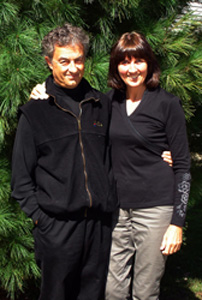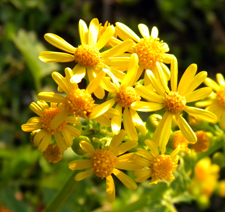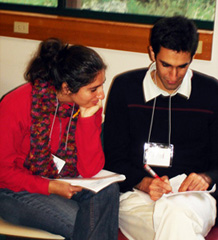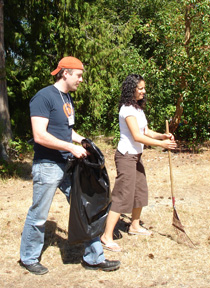"...[T]he provision of guidance on administrative matters such as the laws of engagement, marriage, and divorce falls under the purview of Local and National Spiritual Assemblies...." (On behalf of the Universal House of Justice to an individual, September 24, 2014)
Possible Approaches to Relationships
“...[T]here is nothing in the Bahá’í Writings which relates specifically to the so-called dating practices prevalent in some parts of the world, where two unmarried people of the opposite sex participate together in a social activity. In general, Bahá’ís who are planning to involve themselves in this form of behavior should become well aware of the Bahá’í Teachings on chastity and, with these in mind, should scrupulously avoid any actions which would arouse passions which might well tempt them to violate these Teachings. In deciding which acts are permissible in the light of these considerations, the youth should use their own judgment, giving due consideration to the advice of their parents, taking account of the prevailing customs of the society in which they live, and prayerfully following the guidance of their conscience. It is the sacred duty of parents to instill in their children the exalted Bahá’í standard of moral conduct, and the importance of adherence to this standard cannot be over-emphasized as a basis for true happiness and for successful marriage.” (On behalf of the Universal House of Justice: February 5, 1992, to an individual)

Self-Preparation
Some Perspectives from Marriage Transformation:
Self-preparation is a first vital step. Knowing and developing your character--including your virtues, resolving issues from your past, building your relationship knowledge and skills, and knowing what is important to you in a marriage and in a spouse are all important.
You are then empowered to be effective in a relationship. Your knowledge of your own character will help you recognize character strengths (and growth areas!) in a partner.



Books to Accompany Groups and Individuals in Preparing for Relationships and Marriages
Courtship Towards Marriage
New Revised 4th Edition of Marriage Can Be Forever--Preparation Counts! (2024)
Some Perspectives from Marriage Transformation:
Relationships are going through a process of organic culture change. The Bahá’í teachings encourage friendship, practicing chastity, and focusing on knowing each other's character as aspects of relationships that have marriage as the goal.
|
|
“Concerning your wish for a marriage partner to enhance your life and service, you are encouraged to trust in God, pursue your purposes with a joyful heart, and identify opportunities, through your own prayerful consideration or through consultation with others, to meet a man to whom you could consider being married.” (On behalf of the Universal House of Justice to an individual, August 25, 2010)
|
Guidance from the Universal House of Justice:
Compilation: Investigation of Character, Courtship Practices, and Selection of a Marriage Partner
Letter written by the Universal House of Justice in response to an inquiry from a father about his sons:
“As you know, courtship practices differ greatly from one culture to another, and it is not yet known what pattern of courtship will emerge in the future when society has been more influenced by Bahá’í Teachings. However, there is no indication that it will resemble the practices extant in existing cultures…. In this interim period, the friends are encouraged to make great efforts to live in conformity with the Teachings and to gradually forge a new pattern of behavior, more in keeping with the spirit of Bahá’u’lláh’s Revelation. In this context, we offer the following comments.
“Although a Bahá’í may, if he chooses, seek his parents’ advice on the choice of a partner, and although Bahá’í parents may give such advice if asked, it is clear from the Teachings that parents do not have the right to interfere in their children’s actual choice of a prospective partner until approached for their consent to marry. Therefore, when discussing the issue of courtship with your sons, it would be best to discuss it on the level of principle without reference to individuals.
“In the context of the society in which your family now lives, a society in which materialism, self-centeredness and failing marriages are all too common, your sons may well feel that it is wise to have a long period of courtship in which the prospective partners spend much time together and become thoroughly acquainted with each other’s character, background and family. This practice does not in itself contradict Bahá’í law and, as it is not unacceptable in … [country name removed], it appears to be a viable option. As you are aware, Bahá’u’lláh ordained that Bahá’í engagement should not exceed 95 days, and, although this law has not yet been applied universally, it highlights the desirability of marrying quickly once the decision to marry has been firmly taken and parental consent obtained. However, in a relationship in which such a decision has not been taken and in which the law of chastity is strictly observed, there is no objection, in principle, to a prolonged friendship in which the two individuals entertain the possibility of marrying each other at some time in the future.
“You have mentioned that your sons like to invite their girlfriends to spend a lot of time with the family and that you are not entirely happy with this situation. Each family member has rights which should be respected, and if you wish to have some time in your home without the presence of non-family members, the other members of your family should take this seriously into consideration. However, we hasten to point out to you that the situation which you describe, in which your sons wish their friends to be involved with your family, is much more in line with the Teachings than the common pattern in Western countries in which many youth virtually exclude their parents from interacting with their peers, sometimes distancing themselves from their families in order to have the freedom to engage in frivolous and even unchaste behavior….” (Universal House of Justice: August 28, 1994, to an individual)
Additional Resources
Dating and Courting Guidance for Bahá’ís (pdf handout; duplicated on this page)

Character Qualities to Know and Practice
Guidance from the Bahá’í Writings:
“Bahá’í marriage is the commitment of the two parties one to the other, and their mutual attachment of mind and heart. Each must, however, exercise the utmost care to become thoroughly acquainted with the character of the other, that the binding covenant between them may be a tie that will endure forever.”(‘Abdu’l-Bahá, Selections from the Writings of ‘Abdu’l-Bahá, #86)
|
 |
“When two believers begin to investigate each other’s character with the possibility of marriage in mind, the must establish between them a level of openness and close communication. They will themselves determine if, when and how they will share past and personal experiences. In this process, it is necessary to reconcile a variety of spiritual principles and obligations. Truthfulness and trustworthiness are essential of course, yet other aspects of the teachings must be weighed, such as Shoghi Effendi’s guidance that while a believer may choose to acknowledge to another a wrong or fault of character, one is not obliged to do so.” (On behalf of the Universal House of Justice, "Investigation of Character, Courtship Practices, and Selection of a Marriage Partner", #20)
|
Some Perspectives from Marriage Transformation:
Becoming thoroughly acquainted with the character of a partner is a primary requirement for Bahá’ís who are dating, courting, and considering marriage. In almost every other circumstance, the guidance from the Bahá’í Writings to us as individuals is to overlook negative aspects about someone and just focus on the positive good in the person. Consider how to apply the guidance to only look for the good in others as well as the guidance to be thorough in understanding a potential mate. If you see only the good and it is very tiny, and the person has significant character weaknesses, will you be able to successfully establish a happy, harmonious marriage that is of service to others? Might you instead be mired in internal conflict and problems? It is also wise to consider how important particular character qualities or virtues are for you to have in a marriage partner. Truthfulness and faithfulness are likely to be vital qualities to see as strengths in the person. Other qualities may be less important to you, and it's fine if the person is working at improving them.
It is also important to consider the compatibility or interconnection of your strengths as a couple. Someone very creative might need to be partnered with someone just as creative, or it may work better if he/she is excellent at peacefulness and encouragement. Understanding your compatibility requires knowing your own character and what you value in a marriage partner.
Becoming "thoroughly acquainted" or "ascertaining knowledge" invites couples to engage in a wide variety of activities with one another, interact with each other's family, and participate in service together. The goal is to know one another well enough that there is a high level of confidence in the knowledge you hold of each other's character. For some couples, going through parental consent (see below) may then be another level of check, as parents can also know the characters of both partners.
The virtues listed below are some of the ones that Marriage Transformation has found are strengths of particular applicability to relationships and marriages:
Acceptance |
Creativity |
Generosity |
Mercy |
Sincerity |
Assertiveness |
Detachment |
Gentleness |
Moderation |
Spirituality |
Beauty |
Discernment |
Helpfulness |
Patience |
Tactfulness |
Caring |
Encouragement |
Honesty |
Peacefulness |
Thankfulness |
Chastity |
Enthusiasm |
Humility |
Perseverance |
Thoughtfulness |
Commitment |
Equality |
Idealism |
Purity |
Thriftiness |
Compassion |
Excellence |
Integrity |
Purposefulness |
Trustworthiness |
Confidence |
Faithfulness |
Joyfulness |
Resilience |
Truthfulness |
Contentment |
Flexibility |
Justice |
Respect |
Unity |
Cooperation |
Forgiveness |
Kindness |
Responsibility |
Wisdom |
Courage |
Fortitude |
Love |
Self-Discipline |
|
Courtesy |
Friendliness |
Loyalty |
Service |
|
Resources on character from Marriage Transformation.

Soul Mates
Guidance from the Bahá’í Writings:
"The following extract from a letter…written on behalf of Shoghi Effendi in response to a question about the appropriateness of remarriage in light of ‘Abdu’l-Bahá’s statements about the spiritual nature of marriage, might assist...in thinking about this subject:
'There is no teaching in the Bahá’í Faith that “soul mates” exist. What is meant is that marriage should lead to a profound friendship of spirit, which will endure in the next world, where there is no sex, and no giving and taking in marriage; just the way we should establish with our parents, our children, our brothers and sisters and friends a deep spiritual bond which will be everlasting, and not merely physical bonds of human relationship.' (On behalf of Shoghi Effendi: Lights of Guidance, p. 206)
"There is nothing against a person remarrying, the implication of unity in marriage being meant as a spiritual bond which will be everlasting, and not a sexual thing…. It is suggested that Bahá’í marriage does not automatically 'lead to a profound friendship of spirit, which will endure in the next world'. Further, it would appear that the possibility of such an enduring 'friendship' is not limited to the relationship between husband and wife. Rather, it is dependent on the nurturance and development of 'a deep spiritual bond', which transcends the 'merely physical bonds of human relationship' and is conditional on the establishment of 'unity' in the particular relationship." (On behalf of the Universal House of Justice, 7-6-94; Bahá’í Library Online, http://bahai-library.com)
Some Perspectives from Marriage Transformation:
Couples who are in a long-distance relationship must work very hard to have enough experiences together that they can be confident they know one another's character and their compatibility. Marriage education resources that allow for deep discussions between contact and visits can assist this process.
Link to Some Possible Prayers to Say for a Future Husband or Wife, either before or after meeting someone. Saying prayers before someone is in your life can help to orient you lovingly towards the person and asks God to help prepare the person for you. Once you are with someone, prayer for the person can help you to grow the relationship or help you to sense that the person is not a good match for you. Praying with one another can build a bond of spiritual connection between you. Any prayers can work for these purposes...this selection simply contains suggested possibilities.
Analysis of the idea of only one soulmate: http://what-if.xkcd.com/9/ (online article; not a Bahá’í source)
Handouts for self-study or workshops, see Learning-in-Action. Note that these contain more detailed information on chastity.

Activities to Do Together
Some Perspectives from Marriage Transformation:
While you will, of course, do some activities just for the fun of being together, the goal of marriage will likely have you additionally choose other activities. As you choose what to do, think about what will help you know one another's character, deepen your friendship, and build unity with your families. Consider such choices as:
-
Animating a junior youth group
-
-
Teaching children's classes
-
Community service activities: cleaning up public areas, helping at a food bank for low-income people, planting a community garden, helping a neighbor, and more
-
Organizing a family gathering
-
Babysitting or doing childcare
|
|

The Role of Parents in Dating and Courtship
Study Guide for Parents About Dating, Courting, Character, Chastity, and Consent (pdf file; contains quotations for guidance and also content from Marriage Transformation)
Please also see above in the Courtship section and below in the section on Parental Consent for Marriage.


Age At Which Marriage Can Occur
The minimum age at which marriage could take place in Islam was age 9. Bahá'u'lláh raised the minimum age to 15 and made it conditional upon the agreement of both parties to the marriage.
Guidance from the Bahá’í Writings:
Question: "...[T]he age of maturity hath been set at fifteen; is marriage likewise conditional upon reaching maturity, or is it permissible before that time?"
"Answer: Since the consent of both the parties is required in the Book of God, and since, before maturity, their consent or lack of it cannot be ascertained, marriage is therefore conditional upon reaching maturity, and is not permissable before that time." (Bahá'u'lláh: The Kitáb-i-Aqdas, Questions and Answers, Q 92)
"The Bahá’í youth…should be advised, nay even encouraged, to contract marriage while still young and in full possession of their physical vigor. Economic factors, no doubt, are often a serious hindrance to early marriage, but in most cases are only an excuse, and as such should not be overstressed. (On behalf of Shoghi Effendi: The Compilation of Compilations, Vol. I, “A Chaste and Holy Life”, p. 56)

Parental Consent
|
“...[M]arriage is dependent upon the consent of both parties. Desiring to establish love, unity and harmony amidst Our servants, We have conditioned it, once the couple’s wish is known, upon the permission of their parents, lest enmity and rancor should arise amongst them.” (Bahá’u’lláh: Kitáb-i-Aqdas, p. 42) |
Parental Consent Guidance: There is guidance on this topic available to you through books such as Lights of Guidance and through your local or national Spiritual Assembly. Guidance is updated regularly and is often only available through the institutions, so it is important that you obtain recent information. For example, guidance on when a child does not have to seek consent was updated in a January 2011 letter from the US National Spiritual Assembly quoting the Universal House of Justice from January 19, 2010. Parental Consent letter, pdf download
Some more information and quotations on parental consent: http://www.bahaimarriage.net/resources_parentalconsent.htm

Marriage Preparation
Some Perspectives from Marriage Transformation:
Throughout courtship, consent, and engagement, it is wise to be involved in marriage preparation. This means building your knowledge and skills for marriage. Classes, online courses, books, meeting with a happily married mentor couple, or meeting with a coach or counselor and more are options. Current research seems to indicate that marriage preparation and education can help to prevent marriage difficulties. Preparation is helpful for all couples but may be especially beneficial for those at higher risk for relationship and marriage problems, such as for those who have been married previously and divorced, have children from previous relationships, or come from families where parents divorced. See the Resources below.

Online Courses to Help
Online Learning courses about relationships, marriage, parenting, family, Assemblies, and more that are practical and Bahá’í Faith based are available through www.transformationlearningcenter.com.

Further Information
Elsewhere on this website:









